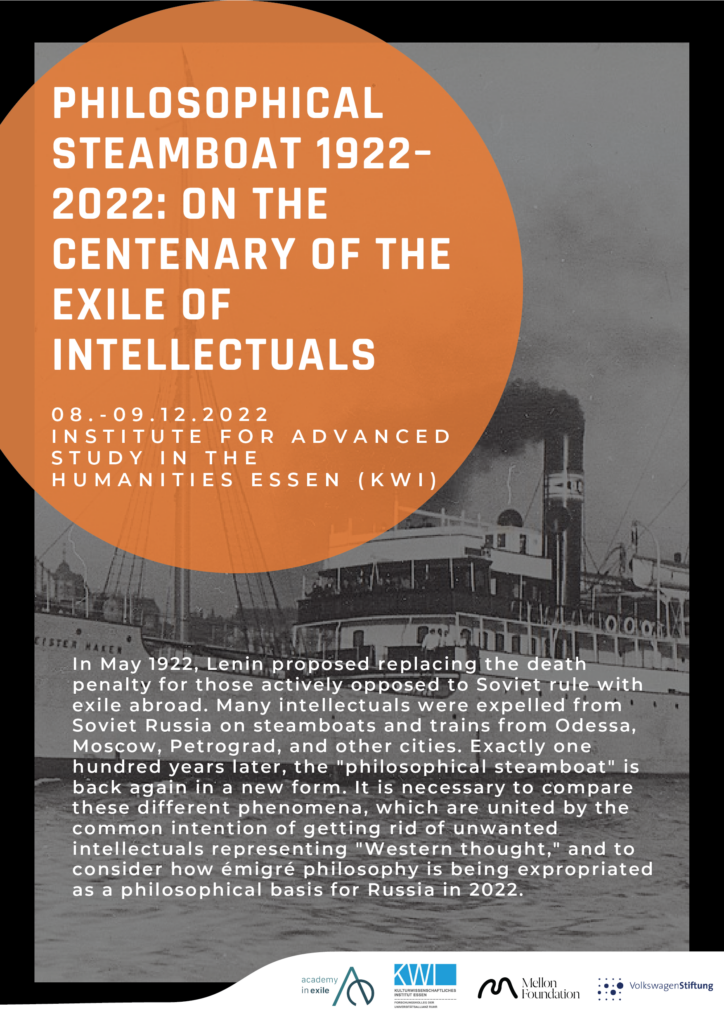International Conference, October 08-09, 2022
Kulturwissenschaftliches Institut Essen (KWI)
In May 1922, Lenin proposed replacing the death penalty for those actively opposed to Soviet rule with exile abroad. Many intellectuals – economists, sociologists, doctors, and philosophers – were expelled from Soviet Russia on steamboats and trains from Odessa, Moscow, Petrograd, and other cities.
After the collapse of the Soviet Union, the works of these thinkers in exile were very actively studied, and Russian religious philosophers became an important part of the philosophical discipline in various post-Soviet countries, including Ukraine, Belarus, and Russia. Preparing for the centenary of the “philosophical steamboat” in 2022, scholars could never have imagined that the Russian army would launch military operations in Ukraine, and that they or their colleagues would be exiled. Philosophers in Ukraine are now forced to work under shelling and bombing, or to seek safety in other countries. Many Russian academics have been denounced for their anti-war activities, and many have been fired and pushed out of the country.
Exactly one hundred years later, the “philosophical steamboat” is back again in a new form. It is necessary to compare these different phenomena, which are united by the common intention of getting rid of unwanted intellectuals representing “Western thought,” and to consider how émigré philosophy is being expropriated as a philosophical basis for Russia in 2022. The workshop will analyze the ideological and political context of the expulsions of 1922 and 2022, as well as the geographical localization of the exiles and their impact on local communities in Europe and beyond. There is also a need to explore biographies through a decolonial and gendered lens in order to show how the history of a hundred years ago can be interpreted today.
Deutschlandfunk aired a feature about the conference in the program „Aus Kultur- und Sozialwissenschaften“. You can find it here (German audio only).

